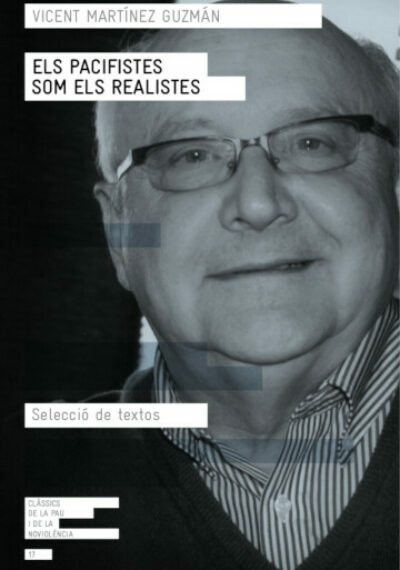
Vicent Martínez Guzmán. Els pacifistes som els realistes. Selecció de textos. Barcelona: Institut Català Internacional per la Pau; Angle, 2019. Classics of Peace and Nonviolence Series, 17.
“Because we have alternatives, we have responsibilities.” This is one of the maxims that permeate the seven texts by the philosopher Vicent Martínez Guzmán compiled in this book, with which he aims to emphasize the public commitment of philosophy. A commitment that is addressed within the author’s philosophical proposal of making peace, in order to explore the analysis and reflection of a series of relevant issues in contemporary society, such as: the importance of recovering the moments of peace, that, although imperfect, have existed in history; the need for policies that promote diversity at a time like now, when migratory movements and contact between people of different cultures occur continuously; the importance of focusing on new masculinities and gender issues to deconstruct discourses that make us think of men and women in a universally naturalized way; the need to raise awareness in outrage and hope now that social movements are increasingly becoming stronger; and the importance of an education for peace and the peaceful transformation of conflicts which empower our peacemaking skills and reaffirm our belief that “we, the pacifists, are the realists.”
Selection of texts and foreword by Irene Comins and Sonia París. Translation by Núria Puyuelo.
The author
Vicent Martínez Guzmán (1949-2018) was a doctor of philosophy, author of numerous publications and a world-renowned academic in the field of peace research and peace studies. He worked tirelessly for the peaceful transformation of conflicts throughout his personal and academic career and was an authentic peacebuilder. He was vice chancellor of Jaume I University in Castelló and director of the UNESCO Chair of Philosophy for Peace at the same university. He was always involved in research through numerous academic institutions and was a member of various organizations related to the study of peace and conflicts. In recent years, alongside his professional activity, he had also served as vice president of ICIP.
